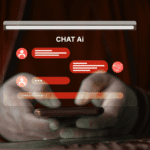A Travel Company Ready to Rethink How It Works
AI in the travel industry is creating big opportunities, but only when it’s applied to the right problems. This travel company had a problem: finding the right information was way harder than it needed to be.
Their teams were wasting time digging through a clunky internal system just to answer simple questions about hotels, flights, holiday packages, and more. Nothing was intuitive. Nothing was fast. And in a world where customers expect answers now, that just didn’t cut it.
They didn’t want flashy AI for the sake of it. They wanted something that actually helped their teams work smarter and serve customers faster. And because the current process relies entirely on people, it’s brittle. When things get busy, the cracks show, manual processes don’t scale easily, meaning delays pile up and teams get stretched thin.
The Challenge: Disconnected Systems and Slow Internal Processes
The internal knowledge base was built on a custom data source. It held everything – product details, availability info, marketing assets, but it wasn’t exactly user-friendly.
If someone needed to check availability or pull up hotel info, they had to run a manual search. Every. Single. Time. No plain-English queries. No quick wins.
This slow process created bigger issues:
- Staff spent too much time hunting for info
- Customer responses took longer than they should
- Availability data wasn’t even stored in the right place
- All of this impacted customer experience, team efficiency, and likely, sales
They wanted to know: Could AI actually make this better?
The Solution: A Smarter Internal Chatbot Powered by AI
Our answer? A proof-of-concept chatbot that lets staff ask questions in plain English and get the info they need, fast.
Recommended Reading: How AI Is Revolutionising Customer Experience and Engagement
No more keyword searching. No more back-and-forth. Just smart access to the knowledge they already have.
We designed the prototype to:
- Plug into their existing custom data source
- Use natural language processing to handle everyday questions
- Start with availability queries, and build from there
- Access external data like live flight updates
- Keep sensitive data locked down and secure with role-based access
It’s designed for the real world, not just a nice demo.
Our Plan: From Proof of Concept to Scalable AI
We proposed an 8–10 week rollout, covering:
- Discovery workshops to figure out exactly what teams need
- Solution architecture to map out integrations and security
- Development and real-world testing to validate performance
- Governance and collaboration every step of the way
The first version will serve internal staff, but we’ve built it with future expansion in mind so eventually, customers could ask the chatbot their own questions via the website.
The Challenges: No AI Project Is Ever Plug-and-Play
A few things we have to navigate:
- Data separation – Making sure sensitive info stays internal and customer-facing content is handled properly
- System integration – Connecting their custom data sources, and the chatbot in a way that works smoothly
- Training the AI – Using real past queries to improve accuracy and build in a feedback loop
- Infrastructure gaps – Supporting integration in their Azure environment, with read-only access to the right systems
- Scalability – Setting it up so the chatbot can handle more use cases down the line.
With the right architecture, the chatbot won’t just answer today’s questions, it’ll adapt to tomorrow’s too.
The Impact: What They Can Expect
- Less time digging for answers – Teams will be able to get info in seconds, not minutes
- Faster customer responses – Unlike a purely human-driven process, the chatbot handles more requests without slowing down, especially useful during peak periods
- Cost savings – With less manual effort, there’s less need for repetitive tasks
- Smarter booking journeys – Real-time availability means quicker decisions and potentially higher conversion
- Scalable insights – From live flight updates to broader product info, the system grows with them
What This Means for the Business
This proof of concept isn’t just about making life easier for staff. It’s about building a foundation for a smarter, faster, AI-ready business.
And if the prototype proves successful?
Customers will be next in line to use the chatbot (See how AI is changing consumer behaviour in travel)
Sensitive data will stay secure and separate
AI will move from an experiment to a trusted part of their day-to-day operations
What This Means for You
If your teams are spending hours looking for answers they should get in seconds, maybe it’s time for a different approach.
Just imagine…
- A chatbot that actually gets your business
- AI that’s trained on your knowledge, not just generic info
- Faster decisions, better service, and less internal faff
- Happier teams, more efficient processes, and customers who don’t have to wait
At Ignite AI Partners, we help businesses like yours figure out what AI can really do and build something that actually works. Explore our AIPD Framework which is a step-by-step approach we use to turn AI ideas into real business outcomes.
Common FAQs
AI tools like chatbots and virtual assistants can provide fast, consistent support, answer queries automatically, and reduce manual work for staff.
AI can integrate with internal databases, booking engines, customer data platforms, and legacy travel systems to streamline operations.
Yes. Role-based access controls, encryption, and secure cloud environments like Azure ensure AI tools comply with data protection regulations.
Ready to See Where AI Can Take You?
Whether you’re just getting started or refining your AI strategy, we’ll help you figure out the next best move.







